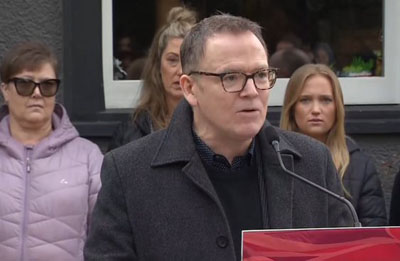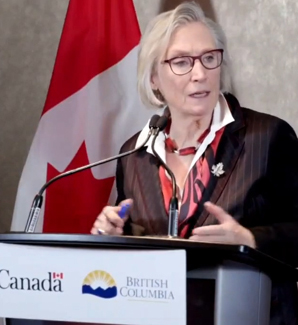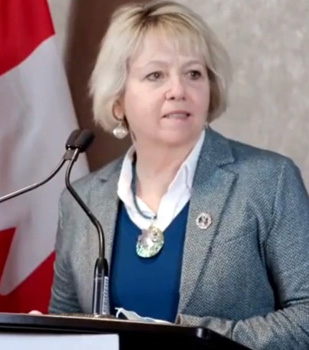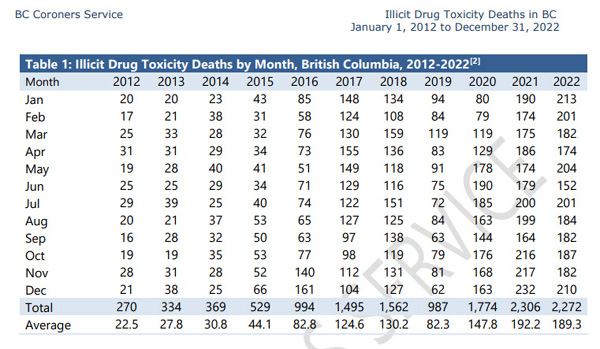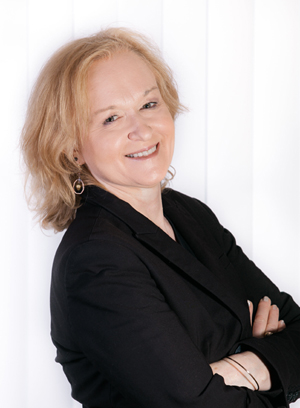Thursday February 2, 2023 | LANGFORD, BC
by Mary P Brooke, B.Sc., Editor | Island Social Trends
Saying that decriminalization of “illicit hard drugs” without a support system to promptly and effectively deal with mental health and addiction (and with drugs not seized or the person charged) is “patently irresponsible”, BC Liberal Leader Kevin Falcon today proposed how his party would do things differently.
Falcon addressed media via Zoom this morning on this issue (audio only / bandwidth issue), taking about five questions from the more than 20 media on the call.
Falcon said that BC Liberals would spend $1.5 billion to offer free addictions treatment with no waits. There would be no fees for public addictions beds. That would require newly built facilities (supportive to developers) and running private facilities that accept the BC Health card (i.e. care paid for by the Province).
Today Minister of Mental Health and Addictions, Jennifer Whiteside, said in a separate media session that “treatment beds and harm reduction approaches” are in progress. “We’re going to keep doing that and not get distracted,” Whiteside said today.
Decriminalization is one part:
Earlier this week, Whiteside was part of the announcement (along with Federal Minister of Mental Health and Addictions, Carolyn Bennett) about decriminalization of possession of small amounts of drugs. BC is rolling out a broad public education campaign for parents, educators and school staff.
“Decriminalizatoin is a historic change, be we know it won’t solve in problem on its own. This is one tool in the province’s fight against this ongoing public health emergency,” said Whiteside in the January 31 announcement.
She seeks to build a system of mental health and addiction care that works for all British Columbians, including “prevention and early intervention, enhancements across the full spectrum of treatment and recovery, as well as expansion of treatment as well as implementing harm reduction measures”.
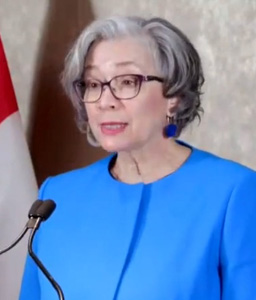
She itemized the number of treatment beds and housing supports.”We’re building a system of care that we know British Columbians need and deserve. “We are always discouraging youth from experimenting with drugs,” said Whiteside.
Criminalization causes harms:
Provincial Health Officer Dr Bonnie Henry said on January 31 that criminalization of people “who use drugs causes harms and does not as we are absolutely sure decrease the use of illegal drugs”. It’s a complex problem. Decriminalization is one of the important steps, as Dr Henry first claimed in a report in April 2019.
“We will be adjusting as we go, and what data we’re following” as well as possibly the 2.5 g measure, said Dr Henry on Tuesday.
Dr Henry did note that drug use went up during the pandemic in 2020 and 2021, which points to impact of socioeconomic conditions on health in general.
During the decriminalization announcement on Tuesday, a representative of the BC RCMP added her concurrence that drug use is a health matter not a police (criminal) matter.
Massive scale required:
Falcon today said there needs to be a “massive scale of treatment and recovery” in BC, to help deal with mental health and addictions, despite what the BC government has outlined. He declared his party’s position on mental health and addictions as a health-care issue, and mentioned homelessness in that mix.
Falcon said that today he was talking about “the critical need for a shift in direction”, saying “the situation here in BC continues to worsen, and every day we witness the crisis in our home and in our streets.”
He reminded that the overdose crisis was declared a public health emergency in 2016. When COVID hit in 2020 and was also declared as a public health emergency, some attention slid from attention to the ‘opioid’ crisis, which government has acknowledged in various ways, and has since ramped up attention on the overdose crisis.
Almost a year ago (in March 2022), a BC Coroner’s panel called for safer drug supply and a continuum of care.
11-year stats:
Earlier this week the BC Coroner released the latest data on deaths 2012-2022 due to substance use: 12,892 deaths over 11 years. The highest tallies were in 2021 and 2022 (2,306 and 2,272 respectively).
The BC Coroner and government leaders say that toxicity of the drug supply is adding to the problem. BC announced decriminalization of possession of small amounts (under 2.5 g) of illicit drugs, and in some locations provides a safe supply, as one way to try and combat the toxicity side of the equation.
Preliminary data in 2022 has found that fentanyl or its analogues have been detected in 82% of all illicit drug toxicity deaths. In 2021, fentanyl or its analogues have been detected in 86% of deaths.
Root cause:
The root cause of people seeking relief through the use of drugs is really never directly articulated, but referred to in listing off the various attempts at the solution (such as mental health supports, expansion of treatment and recovery beds, addressing homelessness with wrap-around supports, etc).
Root cause generally includes the impacts of a range of traumas, many of which result from economic and social stresses including those that result in poor health, harms from poor living conditions, and poverty.
Youth have additional stresses, as they head into a future challenged by climate change, complex changes in societal norms, and a difficult economy. But all adults are affected by current conditions (which would include the pressures of inflation and increasing cost of living, as well as unfolding impacts of the pandemic that took a hit on social norms and employment scenarios): the BC Coroner reported on Tuesday that illicit drug toxicity death rates among all age groups above age 19 have increased in the past year (December 2022 compared to November 2022).
Falcon says that immediate care is needed when people reach a moment where they’re ready to get off drugs. Even if that needs to be provided through private clinics (funded by public money). He described that today as “accessible no cost recovery of care”. He made clear his own position: “Addiction is not a moral failure it is a medical condition”.
BC Green Party Leader Sonia Furstenau also commented this week: “We must start addressing toxic drugs like a public health crisis,” she said in a statement, when in fact it has been a public health emergency for over six years now. She described the crisis as “stemming from declining mental health, unaffordability, and lack of preventive health-care”. The Greens want to “rebuild the systems that hold people up and help them recover”.
===== LINKS:
Escalated drug-poisoning response actions (BC Government link – Jan 31, 2023)
Decriminalizing people who use drugs in BC (BC Government link – Jan 31, 2023)
===== ABOUT THE WRITER:
Mary P Brooke, B.Sc., Cert PR is a long-time journalist, delivering news through a socioeconomic lens through Island Social Trends.
Based on the west shore of south Vancouver Island, her publication IslandSocialTrends.ca covers news of the Greater Victoria area, south Vancouver Island, with insights on BC and national issues.
Ms Brooke has consistently covered SD62 news at the board and committee level since 2014. Mary Brooke was a school trustee candidate in SD62 Belmont Zone (Langford, Colwood, Metchosin, Highlands) in October 2022.
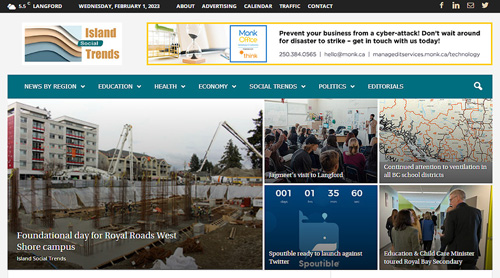
===== ABOUT ISLAND SOCIAL TRENDS:
Island Social Trends emerged in mid-2020 from a preceding series of publications by founder/editor Mary P Brooke and published by Brookeline Publishing House Inc. The series is, so far: MapleLine Magazine (2008-2010), Sooke Voice News (2011-2013), and West Shore Voice News (2014-2020), and Island Social Trends (2020 to present). | ARCHIVES: POLITICS | HEALTH | EDUCATION




